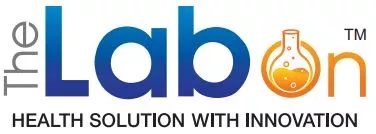The Role of Compounding Pharmacies in Modern Healthcare: A Comprehensive Overview
In today’s healthcare landscape, the role of compounding pharmacies has become increasingly significant, offering customized medication solutions tailored to the unique needs of patients. Compounding pharmacies bridge the gap between standardized pharmaceutical products and individual requirements, providing services that cater to diverse medical needs. This article delves into the essential functions of compounding pharmacies, their benefits, and their impact on modern healthcare, supported by the latest research and insights.
What is a Compounding Pharmacy?
A compounding pharmacy specializes in creating personalized medications by combining, altering, or adjusting ingredients to meet specific patient needs. Unlike mass-produced pharmaceuticals, compounded medications are crafted based on a doctor’s prescription and tailored to address individual preferences such as dosage strength, flavor, or allergen-free formulations.
Compounding has a long history, dating back to the origins of pharmacy itself. However, with advancements in technology and stricter pharmaceutical regulations, modern compounding pharmacies have evolved into highly regulated facilities equipped with cutting-edge equipment and protocols to ensure safety and efficacy.
The Importance of Compounding in Modern Medicine
Personalized Treatment Plans
Compounding pharmacies enable healthcare providers to create medications tailored to individual patient needs. This is particularly useful for:
Patients with allergies to specific excipients like dyes or preservatives.
Those requiring non-standard dosages that are not commercially available.
Pediatric or geriatric patients who need smaller, more precise doses or alternative delivery methods such as liquids or transdermal gels.
Addressing Drug Shortages:
Compounding pharmacies play a crucial role during drug shortages by recreating medications that are temporarily unavailable in the market. They ensure continuity of care by formulating these essential drugs locally, minimizing the disruption to treatment plans.
Improving Medication Compliance:
Poor medication adherence is a major issue in healthcare, often caused by factors like unpleasant taste or difficulty swallowing pills. Compounding pharmacists can modify medications by:
Adding flavors to improve taste (especially for children and pets).
Creating alternate dosage forms such as creams, lozenges, or troches.
Specialized Care for Chronic Conditions
Patients with chronic or rare conditions often require unique medication formulations. Compounding pharmacies provide customized solutions for:
Hormone replacement therapy (HRT)
Pain management
Dermatological issues
Veterinary needs
Latest Research and Advances in Compounding Pharmacy
The field of compounding pharmacy has witnessed remarkable innovations in recent years, driven by advancements in technology and pharmaceutical research.
Precision Medicine and Pharmacogenomics
According to a study published in Nature Reviews Genetics, personalized medicine has gained traction due to pharmacogenomics, the study of how genes affect a person’s response to drugs. Compounding pharmacies are at the forefront of this revolution, tailoring medications based on genetic profiles to improve efficacy and minimize side effects.
Nanotechnology in Compounding
The integration of nanotechnology has enabled the development of nanoparticle-based delivery systems for enhanced drug absorption and targeted delivery. Compounded medications using nanotechnology are showing promise in areas like oncology and pain management.
Advancements in Compounding Equipment
Modern compounding pharmacies are equipped with advanced tools such as homogenizers, freeze dryers, and encapsulators, which ensure consistent quality and precision in every formulation. A report by Pharmaceutical Technology highlights how automation and AI-driven quality control are reducing human error in compounding.
Sterile Compounding for Critical Care
The demand for sterile compounding has risen significantly, especially for injectable medications, ophthalmic solutions, and intravenous therapies. According to the Journal of Pharmaceutical Sciences, advancements in cleanroom technology and aseptic techniques have improved the safety and sterility of these preparations.
Regulations and Safety Measures
Compounding pharmacies operate under stringent regulatory frameworks to ensure patient safety. In the United States, the FDA and state pharmacy boards oversee compounding practices, while the USP (United States Pharmacopeia) provides guidelines for both sterile and non-sterile compounding.
Key safety measures include:
Proper Training: Compounding pharmacists undergo specialized training to master advanced formulation techniques.
Quality Control: Rigorous testing of raw materials and finished products ensures purity, potency, and stability.
Cleanroom Standards: Compliance with USP <797> and <800> guidelines for sterile and hazardous drug compounding minimizes contamination risks.
The Future of Compounding Pharmacies
The role of compounding pharmacies is expected to expand in the coming years, driven by:
- Telemedicine Integration: Compounded medications can be seamlessly prescribed through telemedicine platforms, enhancing accessibility.
- Biologics and Biosimilars: As biologics gain prominence, compounding pharmacies may begin formulating biosimilar solutions to cater to specific patient populations.
- Environmental Sustainability: Green compounding practices, such as using biodegradable excipients and minimizing waste, are gaining popularity.
Why Choose The Labon for Compounding Solutions?
At The Labon, we pride ourselves on being Pakistan’s premier compounding pharmacy, offering cutting-edge solutions tailored to individual needs. Here’s why healthcare professionals and patients trust us:
- Experienced Team: Our pharmacists are highly skilled in creating precise formulations, ensuring optimal results for every prescription.
- State-of-the-Art Facilities: Equipped with modern tools and strict quality control measures, we deliver safe and effective medications.
- Wide Range of Services: From dermatology and pain management to hormone replacement and pediatrics, we cover a diverse spectrum of needs.
- Customer-Centric Approach: We work closely with patients and providers to create solutions that prioritize comfort and compliance.
For more information or to explore our offerings, visit our shop page at shop.thelabon.com or email us at info@thelabon.com.
Conclusion
Compounding pharmacies are a cornerstone of personalized medicine, providing essential services that address gaps in conventional healthcare. With advancements in technology, regulations, and patient-centric approaches, their role is more vital than ever. At The Labon, we are committed to delivering innovative compounding solutions that empower patients and enhance their quality of life. Choose us for your compounding needs and experience the difference of personalized care.


